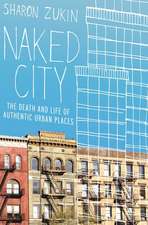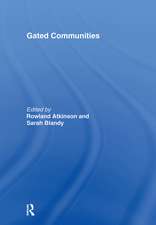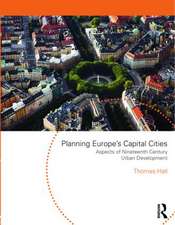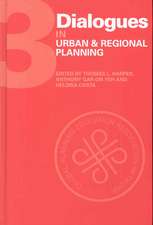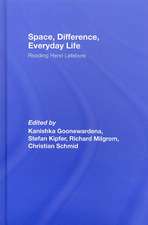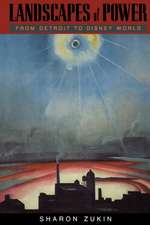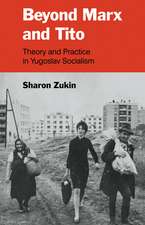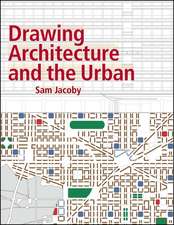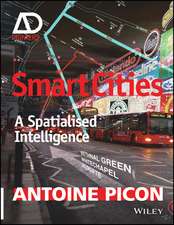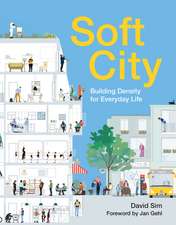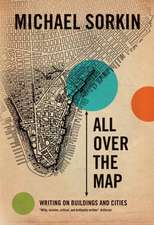After the World Trade Center: Rethinking New York City: Cultural Spaces
Editat de Michael Sorkin, Sharon Zukinen Limba Engleză Hardback – 19 apr 2002
Din seria Cultural Spaces
-
 Preț: 381.62 lei
Preț: 381.62 lei - 40%
 Preț: 160.34 lei
Preț: 160.34 lei -
 Preț: 318.10 lei
Preț: 318.10 lei -
 Preț: 396.73 lei
Preț: 396.73 lei - 23%
 Preț: 316.54 lei
Preț: 316.54 lei -
 Preț: 468.79 lei
Preț: 468.79 lei -
 Preț: 419.92 lei
Preț: 419.92 lei -
 Preț: 362.05 lei
Preț: 362.05 lei -
 Preț: 475.04 lei
Preț: 475.04 lei -
 Preț: 364.94 lei
Preț: 364.94 lei -
 Preț: 408.63 lei
Preț: 408.63 lei - 5%
 Preț: 411.41 lei
Preț: 411.41 lei -
 Preț: 286.52 lei
Preț: 286.52 lei -
 Preț: 267.40 lei
Preț: 267.40 lei -
 Preț: 366.67 lei
Preț: 366.67 lei - 19%
 Preț: 478.09 lei
Preț: 478.09 lei -
 Preț: 482.82 lei
Preț: 482.82 lei -
 Preț: 328.73 lei
Preț: 328.73 lei - 19%
 Preț: 422.19 lei
Preț: 422.19 lei -
 Preț: 370.97 lei
Preț: 370.97 lei -
 Preț: 364.46 lei
Preț: 364.46 lei - 22%
 Preț: 193.66 lei
Preț: 193.66 lei - 8%
 Preț: 375.43 lei
Preț: 375.43 lei - 13%
 Preț: 291.62 lei
Preț: 291.62 lei -
 Preț: 310.09 lei
Preț: 310.09 lei
Preț: 452.35 lei
Nou
Puncte Express: 679
Preț estimativ în valută:
86.57€ • 93.100$ • 72.72£
86.57€ • 93.100$ • 72.72£
Carte tipărită la comandă
Livrare economică 23 aprilie-07 mai
Preluare comenzi: 021 569.72.76
Specificații
ISBN-13: 9780415934794
ISBN-10: 0415934796
Pagini: 248
Ilustrații: 20 color images
Dimensiuni: 152 x 229 x 24 mm
Greutate: 0.52 kg
Ediția:1
Editura: Taylor & Francis
Colecția Routledge
Seria Cultural Spaces
Locul publicării:Oxford, United Kingdom
ISBN-10: 0415934796
Pagini: 248
Ilustrații: 20 color images
Dimensiuni: 152 x 229 x 24 mm
Greutate: 0.52 kg
Ediția:1
Editura: Taylor & Francis
Colecția Routledge
Seria Cultural Spaces
Locul publicării:Oxford, United Kingdom
Notă biografică
Michael Sorkin is principal of the Michael Sorkin Studio and director of the graduate urban design program at New York's City College. He is the author of Other Plans (2002), The Next Jerusalem (2002), Some Assembly Required (2001), Giving Ground (co-edited with Joan Copjec, 1999), Wiggle (1998), Exquisite Corpse (1994), Local Code (1993), and Variations on a Theme Park (edited, 1991). He also contributes to the New York Times Magazine, among other publications. Sharon Zukin is Professor of Sociology at the CUNY Graduate Center and Broeklundian Professor of Sociology at Brooklyn College. She is the author of The Cultures of Cities (1995), Landscapes of Power (winner of the C. Wright Mills Award, 1991), Structures of Capital (co-edited with Paul DiMaggio, 1990), and Loft Living (1982).
Recenzii
"The contributors read like a who's who of progressive Manhattan." -- The San Francisco Chronicle
"After the World Trade Center... is a rare and unflinching lesson book on New York among the truckloads of books emerging with the anniversary of the attacks. Michael Sorkin, arguably America's most provocative architecture critic, edited the book along with sociology professor Sharon Zukin... As a whole, the book offers and unapologetic, left-of-center viewpoint. But its mining of Manhattan's deep past and often ironic present offers some important insights for the city's future." -- The Oregonian
"vividly of a moment, capturing on paper what hovers in the air...And that's the value of After the World Trade Center: It shows how, as New York faces a challenge once inconceivable, the people who love it are fearful that belligerent panic will trample deeper issues and needs." -- San Francisco Chronicle
"Global and local in outlook, reaching beyond the personal-tragedy, American-values perspective that has dominated the media, this thoughtful volume is not just for New Yorkers." -- Booklist
"[A] singularly politically incorrect radical rethinking of the whole event and the great city in which it happened...one of the most provocative and perhaps most important books yet to come out of the event." -- The Buffalo News
"After the World Trade Center... is a rare and unflinching lesson book on New York among the truckloads of books emerging with the anniversary of the attacks. Michael Sorkin, arguably America's most provocative architecture critic, edited the book along with sociology professor Sharon Zukin.As a whole, the book offers an unapologetic, left-of-center viewpoint. But its mining of Manhattan's deep past and often ironic present offers some important insights for the city's future." -- Portland Oregonian
"After the World Trade Center... is a rare and unflinching lesson book on New York among the truckloads of books emerging with the anniversary of the attacks. Michael Sorkin, arguably America's most provocative architecture critic, edited the book along with sociology professor Sharon Zukin... As a whole, the book offers and unapologetic, left-of-center viewpoint. But its mining of Manhattan's deep past and often ironic present offers some important insights for the city's future." -- The Oregonian
"vividly of a moment, capturing on paper what hovers in the air...And that's the value of After the World Trade Center: It shows how, as New York faces a challenge once inconceivable, the people who love it are fearful that belligerent panic will trample deeper issues and needs." -- San Francisco Chronicle
"Global and local in outlook, reaching beyond the personal-tragedy, American-values perspective that has dominated the media, this thoughtful volume is not just for New Yorkers." -- Booklist
"[A] singularly politically incorrect radical rethinking of the whole event and the great city in which it happened...one of the most provocative and perhaps most important books yet to come out of the event." -- The Buffalo News
"After the World Trade Center... is a rare and unflinching lesson book on New York among the truckloads of books emerging with the anniversary of the attacks. Michael Sorkin, arguably America's most provocative architecture critic, edited the book along with sociology professor Sharon Zukin.As a whole, the book offers an unapologetic, left-of-center viewpoint. But its mining of Manhattan's deep past and often ironic present offers some important insights for the city's future." -- Portland Oregonian
Cuprins
1.Michael Sorkin and Sharon Zukin, Introduction 2. Marshall Berman, When Bad Buildings Happen to Good People 3.Sharon Zukin, Our World Trade Center 4.Edwin G. Burrows,Manhattan at War 5.John Kuo Wei Tchen,Whose Downtown?!? 6.Beverly Gage The First Wall Street Bomb 7.David Harvey, Cracks in the Edifice of the Empire State 8.Mark Wigley,Insecurity By Design 9.Eric Darton, The Janus Face of Architectural Terrorism 10.Neil Smith,Scales of Terror 11.M. Christine Boyer, The Wounded Skyline, 12.Andrew Ross,The Odor of Publicity 13.Moustafa Bayoumi,Letter to a G-Man 14.Arturo Ignacio Sanchez,From Jackson Heights to Nuestra America 15.Peter Marcuse,What Type of Planning After September 11? 16.Setha Low, Spaces of Reflection, Recovery, and Resistance 17. Robert Paaswell,A Time for Transportation Strategy 18.Keller Easterling,Enduring Innocence 19.Michael Sorkin,The Center Cannot Hold 20.Mike Wallace, New York, New Deal About the Contributors

